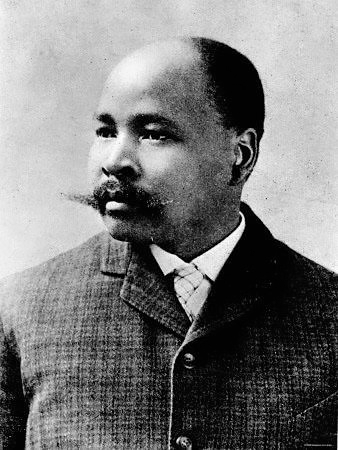Biography of John
Biography of John Langalibalele Dube John Langalibalele Dube was many things to South Africans while he lived. He was an essayist, educator, philosopher, politician, poet, publisher and novelist.
He was the first president of the South African Native National Congress (SANNC), which later became the African National Congress in 1923. John Langalibalele was born on the 11th of February 1871 in Natal at the Inanda mission station of the American Zulu Mission (AZM).
His father, Rev. James Dube, was one of the earliest Africans ordained as pastors by the AZM. Dube started his formal education in Inanda and Adams College, Amanzimtoti. While he was at school, he got into some trouble with other boys, and the school’s Reverend Goodenough approached his colleague, William Wilcox, to come talk with the boys.
That began a relationship between Dube and Rev. Wilcox. In 1887, Dube pleaded with Wilcox who planned to return to the U.S, to take him along so he could further his education there. Wilcox agreed conditionally, that Dube would have to be responsible for himself financially.
When Dube arrived the US, he attended Oberlin Academy Preparatory School. He got to work doing outdoor labouring jobs to earn money. Not satisfied with the odd jobs, Wilcox introduced him to Mrs Frank H Foster, who helped him find a more suitable work.
From 1888 to 1890, Dube studied the sciences, mathematics, classical Greek works, and took a course in oratorical skills. Although Dube did not graduate from Oberlin College, the skills, connections and all he learnt laid the foundations for his later accomplishments. While in the US, Dube accompanied Wilcox on his lecture tours and was given an opportunity to lecture as well. He lectured from 1890 to 1892, giving talks throughout New York, Ohio and Pennsylvania. Dube was able to raise some money which was later used to start a school in South Africa.
During this time he published a book called A Familiar Talk Upon My Native Land and Some Things Found There. His writing skills and literature would prove very useful later as he led the indigenous people to battle for their rights. Dube was forced to return to South Africa in 1892 because of an illness. A year after his return, Wilcox also returned to work at a mission station at Groutville. On his return, Dube got a job in his former high school in Amanzimtoti as a teacher. There, he met Nokutela Mdima who later became his wife. In 1894, Dube was encouraged by Wilcox and Nokutela to start up his own mission.
He went on to start a day school where he taught mathematics and English. He also built two churches between 1894 and 1896. His school was different from the other missionary schools in that the students were encouraged to read in their native language and to focus on the practical aspects of the curriculum. In August 1900, he also founded the Zulu Christian Industrial Institute which was renamed the Ohlange Institute in 1901.
This was the first educational institution in South Africa to be founded by black Africans. He received several invitations to lecture and was consequently awarded a Doctorate of Philosophy. Dube also along with other like-minded, established the Natal Native Congress (NNC) in July 1900. This marked the beginning of his commitment to political action. He hoped that the NNC would help Africans express their aspirations and grievances to the white colonial government. He had picked up writing and editing skills during his sojourn in the US where he worked for a local printing firm at a time. Together with his wife Nokutela, he established the first indigenous Zulu newspaper, Ilanga Lase Natal.
This was in 1903. The newspaper became a mouth-piece for the African population. It is interesting to note that the paper is still in existence and its 100th anniversary was celebrated in 2003. Dube wrote a number of literary works including the historical novella: "Shaka's Body Servant." He also wrote the biographies of Zulu rulers, including King Dinizulu, making him the first African biographer. In 1912, several educated blacks met in Bloemfontein and established the South African Native National Congress (SANNC) and Dube became the first president of the party.
The SANNC was renamed African National Congress (ANC) in 1923 and it became the major platform for the fight for the libereation black and colored South Africans. Dube unfortunately could not replicate his organizational success in his marriage. They could not properly handle their child-bearing challenge as Dube went on to father a child with one of his pupils, leaving Nokutela humiliated. Dube and his wife separated in 1914 and Nokutela left Natal for Transvaal. However she developed kidney disease and came back to live with Dube. She died in 1917 at only 44. Dube was very successful in his endeavours in contributing to the political and socio-economic development of Blacks in South Africa. He championed the fight against the injustice against Black people. He breathed his last and died on the 11th of February, 1946. It would take over four decades after his death before his dreams for South Africa were fully actualized. What have we missed out of this biography of Langalibalele? Let's know in the comment section.

Post a Comment
Post a Comment